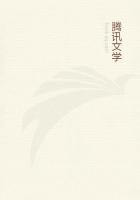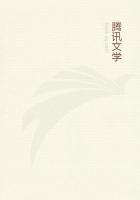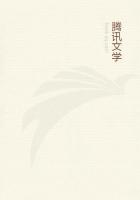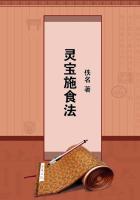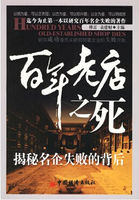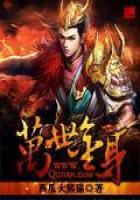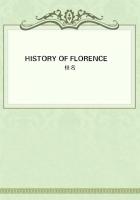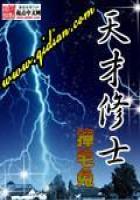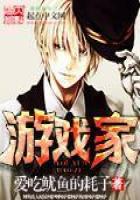While Pitt was thus absent from Parliament, Grenville proposed a measure destined to produce a great revolution, the effects of which will long be felt by the whole human race. We speak of the act for imposing stamp-duties on the North American colonies. The plan was eminently characteristic of its author. Every feature of the parent was found in the child. A timid statesman would have shrunk from a step, of which Walpole, at a time when the colonies were far less powerful, had said--"He who shall propose it will be a much bolder man than I" But the nature of Grenville was insensible to fear. A statesman of large views would have felt that to lay taxes at Westminster on New England and New York, was a course opposed, not indeed to the letter of the Statute Book, or to any decision contained in the Term Reports, but to the principles of good government, and to the spirit of the constitution. A statesman of large views would also have felt that ten times the estimated produce of the American stamps would have been dearly purchased by even a transient quarrel between the mother country and the colonies. But Grenville knew of no spirit of the constitution distinct from the letter of the law, and of no national interests except those which are expressed by pounds, shillings, and pence. That his policy might give birth to deep discontents in all the provinces, from the shore of the Great Lakes to the Mexican sea; that France and Spain might seize the opportunity of revenge; that the empire might be dismembered; that the debt, that debt with the amount of which he perpetually reproached Pitt, might, in consequence of his own policy, be doubled; these were possibilities which never occurred to that small, sharp mind.
The Stamp Act will be remembered as long as the globe lasts. But, at the time, it attracted much less notice in this country than another Act which is now almost utterly forgotten. The King fell ill, and was thought to be in a dangerous state. His complaint, we believe, was the same which, at a later period, repeatedly incapacitated him for the performance of his regal functions.
The heir-apparent was only two years old. It was clearly proper to make provision for the administration of the Government, in case of a minority. The discussions on this point brought the quarrel between the Court and the ministry to a crisis. The King wished to be intrusted with the power of naming a regent by will.
The ministers feared, or affected to fear, that, if this power were conceded to him, he would name the Princess Mother, nay, possibly the Earl of Bute. They, therefore, insisted on introducing into the bill words confining the King's choice to the royal family. Having thus excluded Bute, they urged the King to let them, in the most marked manner, exclude the Princess Dowager also. They assured him that the House of Commons would undoubtedly strike her name out, and by this threat they wrung from him a reluctant assent. In a few days, it appeared that the representations by which they had induced the King to put this gross and public affront on his mother were unfounded. The friends of the Princess in the House of Commons moved that her name should be inserted. The ministers could not decently attack the parent of their master. They hoped that the Opposition would come to their help, and put on them a force to which they would gladly have yielded. But the majority of the Opposition, though hating the Princess, hated Grenville more, beheld his embarrassment with delight, and would do nothing to extricate him from it. The Princess's name was accordingly placed in the list of persons qualified to hold the regency.
The King's resentment was now it the height. The present evil seemed to him more intolerable than any other. Even the junta of Whig grandees could not treat him worse than he had been treated by his present ministers. In his distress, he poured out his whole heart to his uncle, the Duke of Cumberland. The Duke was not a man to be loved; but he was eminently a man to be trusted.
He had an intrepid temper, a strong understanding, and a high sense of honour and duty. As a general, he belonged to a remarkable class of captains, captains we mean, whose fate it has been to lose almost all the battles which they have fought, and yet to be reputed stout and skilful soldiers. Such captains were Coligny and William the Third. We might, perhaps, add Marshal Soult to the list. The bravery of the Duke of Cumberland was such as distinguished him even among the princes of his brave house.
The indifference with which he rode about amidst musket balls and cannon balls was not the highest proof of his fortitude. Hopeless maladies, horrible surgical operations, far from unmanning him, did not even discompose him. With courage he had the virtues which are akin to courage. He spoke the truth, was open in enmity and friendship, and upright in all his dealings. But his nature was hard; and what seemed to him justice was rarely tempered with mercy. He was, therefore, during many years, one of the most unpopular men in England. The severity with which he had treated the rebels after the battle of Culloden, had gained for him the name of the Butcher. His attempts to introduce into the army of England, then in a most disorderly state, the rigorous discipline of Potsdam, had excited still stronger disgust. Nothing was too bad to be believed of him. Many honest people were so absurd as to fancy that, if he were left Regent during, the minority of his nephews, there would be another smothering in the Tower. These feelings, however, had passed away. The Duke had been living, during some years, in retirement. The English, full of animosity against the Scots, now blamed his Royal Highness only for having left so many Camerons and Macphersons to be made gaugers and custom-house officers. He was, therefore, at present, a favourite with his countrymen, and especially with the inhabitants of London.

